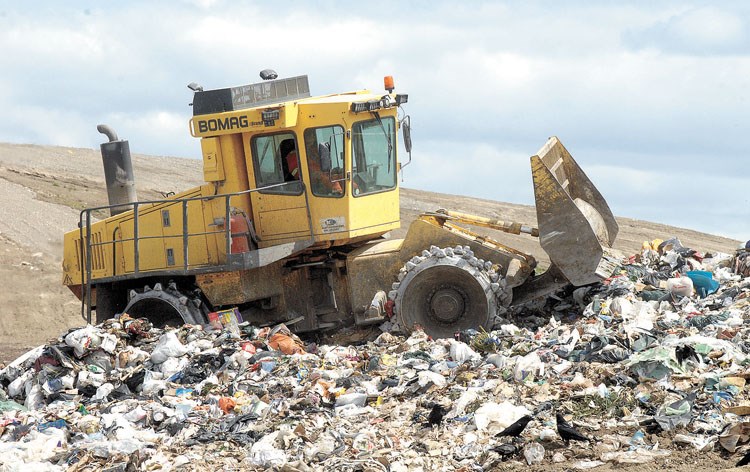Contractors will soon have reason to sort out their refuse before taking it to the landfill.
In answer to the growing amount of waste being dropped off from demolition, land clearing and construction projects, FFGRD directors voted during their February meeting to double the charge for mixed loads to $180 from the current $90 per tonne.
The cost of dropping off mixed loads in which concrete is found will also be doubled to $214.40 as will the charge for loads of asphalt, masonry and rubble, which will rise to $180. But the charge for sorted loads of clean wood, scrap metal, stumps and treated wood will be cut in half to $45.
The charge for asphalt shingles, drywall and wood ash will remain the same at $90. Likewise, those for asbestos, concrete and creosote will remain at $330.35, $107.20 and $164.90 respectively - all on a per tonne basis.
The amount of construction waste going into the landfill has crept up from 14,735 tonnes in 2015 to 20,252 in 2019, according to a study, with mixed loads accounting for 71 per cent.
The changes come after an educational campaign, completed with a Sort Smart brochure and rack card, was conducted to promote source separation.
Over the course of three weeks in 2018, 26 companies that haul construction waste were contacted as part of the effort.
"Concrete is a particularly difficult material to handle at the Foothills Boulevard Regional Landfill and its acceptance and burial at the site presents long term problems for the landfill especially as it relates to capture and utilization of landfill gas," staff commented in a report.
"Other materials, such as clean wood, treated wood, stumps and metal all have value, either on site, or to local recyclers, and by lowering the source separated tipping fee it should incentivize waste haulers to source separate the waste materials before disposal."
Several other regional districts have similar fee structures in place. The new fees will come into effect once the bylaw amendments have been passed in the coming months.



